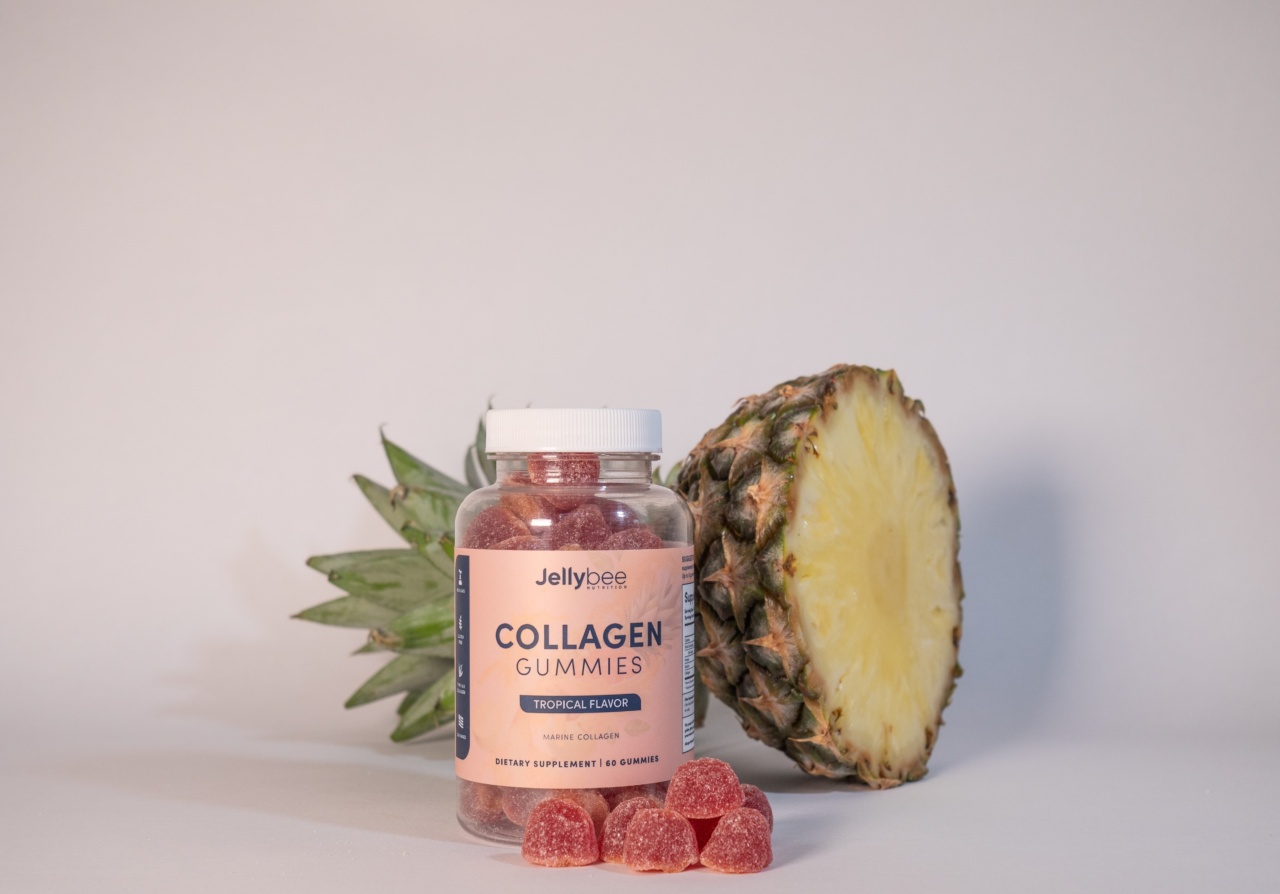As we age, our skin gradually loses collagen, a key protein responsible for maintaining its elasticity and youthful appearance. This natural process commonly leads to the development of wrinkles, sagging skin, and a lackluster complexion.
To combat these visible signs of aging, collagen supplements have gained significant popularity in recent years. Advertised as a potential fountain of youth, these supplements claim to replenish the body’s collagen levels and promote youthful-looking skin.
But do collagen supplements really work for anti-aging? Let’s delve into the scientific evidence to determine if these claims hold any truth.
Understanding Collagen and its Role in Aging
Collagen is the most abundant protein in our bodies, comprising approximately 30% of all proteins. It plays a crucial role in maintaining the structure and strength of various connective tissues, including skin, tendons, ligaments, and bones.
Collagen also provides the skin with support, elasticity, and hydration, giving it a smooth and youthful appearance.
As we age, the natural production of collagen in our bodies starts to decline. This decline is accelerated by external factors such as UV radiation, pollution, smoking, and an unhealthy diet.
Consequently, the gradual depletion of collagen leads to the appearance of wrinkles, fine lines, and sagging skin, often associated with the aging process.
The Promise of Collagen Supplements
Collagen supplements are primarily composed of collagen peptides, which are broken-down proteins that are easily absorbed by the body.
The idea behind these supplements is that by consuming collagen orally or topically, you can increase collagen levels in the body, thereby improving skin elasticity and reducing the visible signs of aging.
Proponents argue that collagen supplements may provide various benefits beyond improving skin health. These potential benefits include strengthening nails, improving hair quality, supporting joint health, and promoting gut health.
However, for the purpose of this article, we will primarily focus on the efficacy of collagen supplements for anti-aging.
The Scientific Evidence: Do Collagen Supplements Really Work?
While collagen supplements have gained significant popularity among consumers seeking a natural solution for youthful skin, the scientific evidence supporting their effectiveness is still limited and inconclusive.
A majority of the available research has focused on collagen skincare products rather than oral supplements.
1. Skin Benefits of Collagen Supplements: Moisture and Elasticity
Several small-scale studies have suggested that taking collagen supplements may improve skin hydration and elasticity.
For instance, a study conducted in 2014 found that women who took collagen peptides experienced significant improvements in skin moisture levels compared to those who took a placebo.
Another study published in 2019 showed that participants who consumed collagen supplements for 12 weeks demonstrated improved skin elasticity, with noticeable reductions in wrinkle depth.
However, it’s important to note that both of these studies were industry-funded, which may introduce some bias into the results.
On the contrary, a comprehensive review of collagen supplementation on skin health published in 2019 found insufficient evidence to support the efficacy of collagen supplements in improving skin elasticity and reducing wrinkles.
The review concluded that further well-controlled studies are required to reach a definite conclusion.
2. Absorption and Bioavailability of Collagen Supplements
One of the primary concerns regarding collagen supplements is their bioavailability – the extent to which a substance can be absorbed and utilized by the body.
Collagen molecules are relatively large and complex, raising doubts about their ability to be effectively absorbed through oral consumption.
Research suggests that collagen hydrolysates, which are smaller molecules derived from collagen through the process of hydrolysis, may be more easily absorbed by the body.
These hydrolyzed collagen peptides are broken down into individual amino acids and small peptide chains, potentially enhancing their bioavailability.
One study conducted in 2019 sought to compare the bioavailability of various collagen types. The researchers found that the hydrolyzed collagen peptides were efficiently and rapidly absorbed by the intestine, reaching the bloodstream within a few hours.
However, it’s important to note that this study did not directly measure the increase in collagen levels in the skin or other target tissues.
3. Collagen Supplements and Wrinkle Reduction
While some studies have indicated a potential benefit of collagen supplements in reducing wrinkle depth and improving skin elasticity, the scientific evidence available is still limited and inconsistent.
A systematic review published in 2018 analyzed the efficacy of collagen supplementation on skin aging, including wrinkle reduction.
The review concluded that the overall quality of evidence was low, and more high-quality studies were necessary to draw definitive conclusions.
Furthermore, collagen supplements are often marketed alongside other ingredients such as vitamins, minerals, and antioxidants.
It is challenging to determine whether the observed improvements in skin health are solely attributable to collagen or a combination of ingredients.
4. The Importance of Lifestyle Factors
While collagen supplements may have some potential benefits, it’s important to highlight that they are not a magic solution for reversing the aging process.
Lifestyle factors such as a healthy diet, regular exercise, sun protection, and avoidance of smoking play a crucial role in maintaining youthful-looking skin.
No dietary supplement, including collagen, can compensate for an unhealthy lifestyle or reverse the effects of an inadequate skincare routine.
Therefore, it is essential to approach collagen supplements as one part of a holistic skincare routine rather than a standalone solution.
The Bottom Line: Promising but Inconclusive
Collagen supplements have gained significant attention in recent years as a potential anti-aging solution.
While there is some scientific evidence to suggest their effectiveness in improving skin hydration and elasticity, the overall body of research is still limited, with mixed and inconclusive results.
Before incorporating collagen supplements into your skincare regimen, it is advisable to consult with a dermatologist or healthcare professional who can provide personalized recommendations based on your individual needs and goals.
Additionally, it’s important to adopt a holistic approach to skin health by combining collagen supplements with a well-balanced diet, a healthy lifestyle, and an effective skincare routine.




























